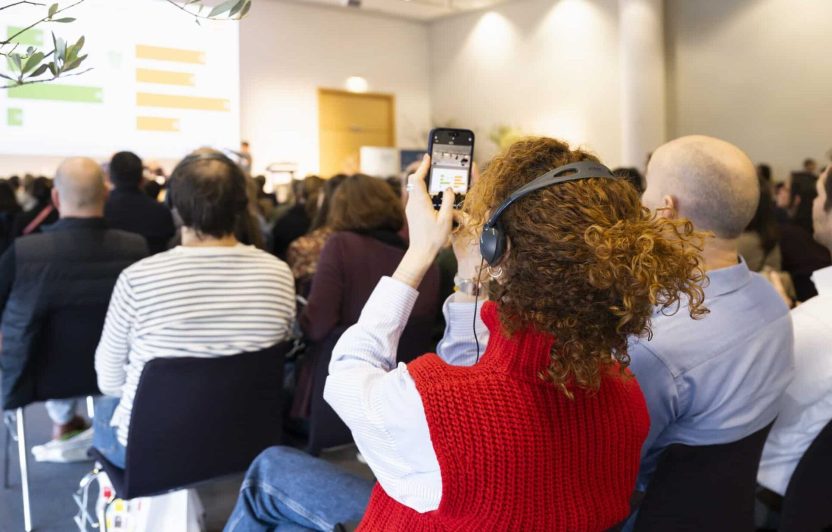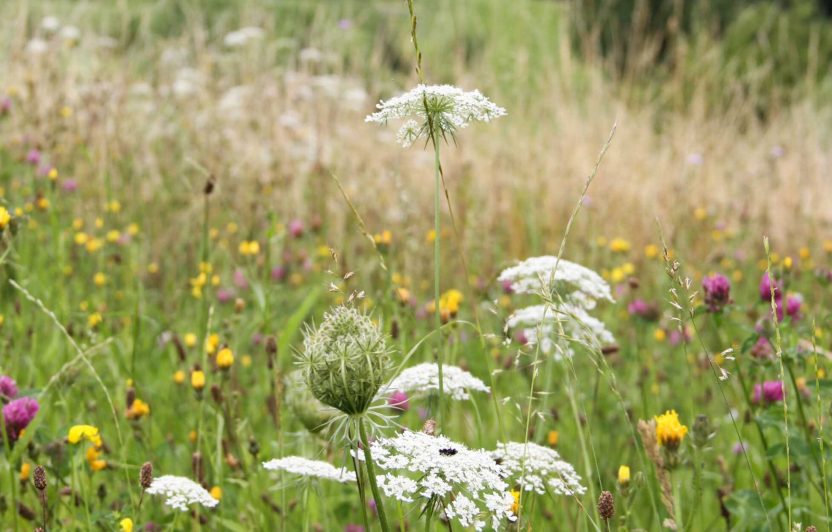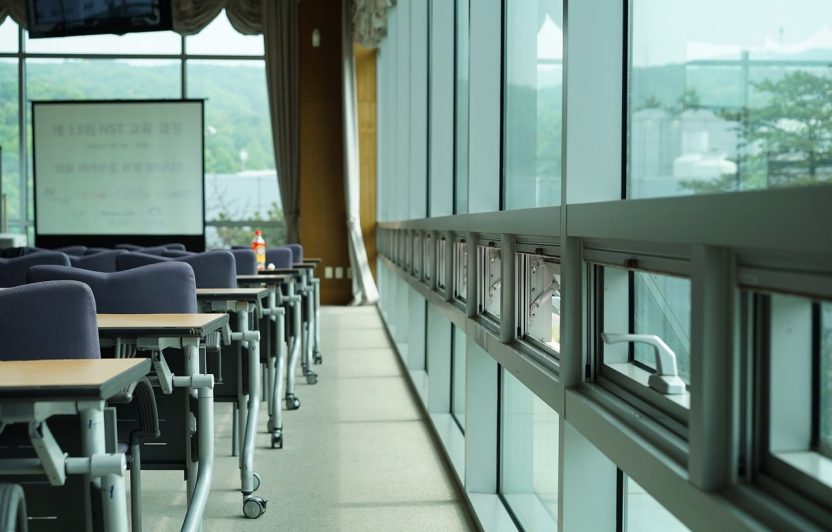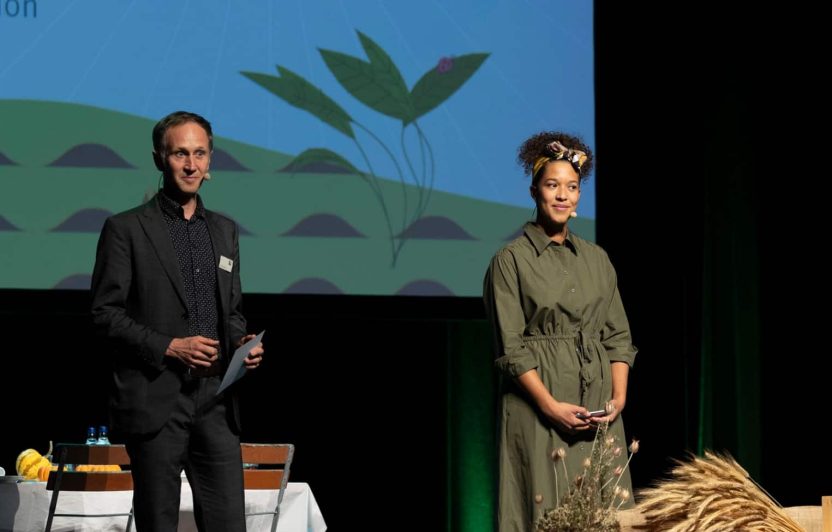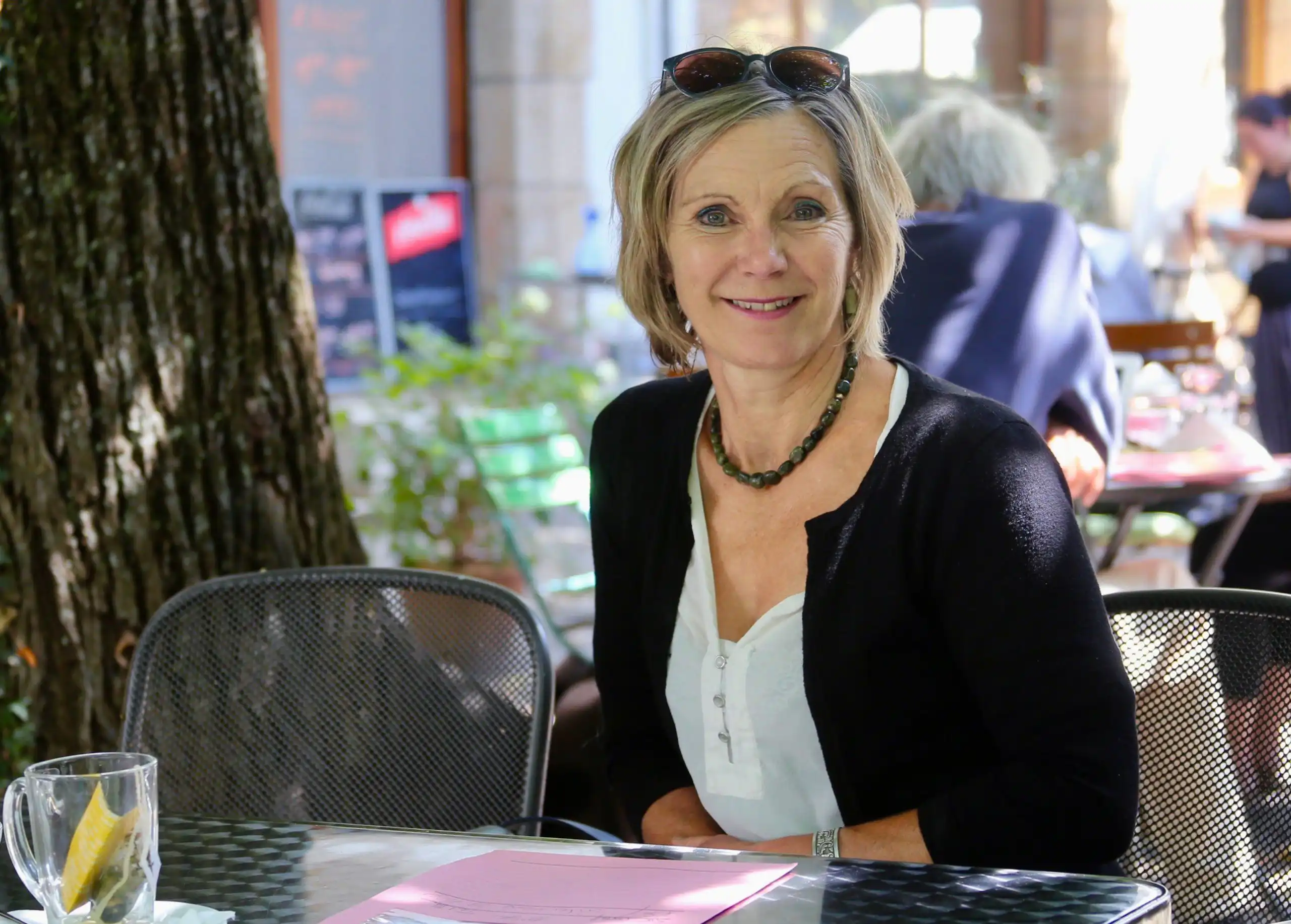
At its annual press conference, held at the beginning of this year, the Farmers’ Union of Switzerland (the Schweizer Bauerverband) spoke of a “fateful year” for the agricultural sector. Is this actually the case?
Maya Graf: I would prefer to think of this “fateful year” as a “Year of Opportunities. Organic farmers – and many other farming families – have always been open to change; they’re innovative and they stand up to the challenges. In fact, I think the main challenge is now faced by the political sector – Parliament, the Federal Council and the Departments.
At the end of last year, the “green wave” experienced in the elections for the National Council generated an atmosphere of euphoria, followed by a period of disillusionment: in its very first session, the Council of States took ecologically unfavourable decisions on many subjects, such as the protection of our water courses. How did you find this session?
Even though we Greens now constitute a parliamentary group of our own in the Council of States, we and the SP are still clearly in the minority. In order to form a majority, therefore, we also depend on representatives from the FDP or CVP who are prepared to join us on topics such as pesticides and protective measures for the climate, natural habitats and biodiversity. At the moment, this is rather unsatisfactory – but things can change. Over the past four years, the balance in government was reversed. Any progress came from the Council of States, while the National Council blocked any advance. These four years were more or less lost. It will be interesting to see what happens now. The signal from the population is clear – voters want us to get on with tackling environmental problems at last, and to find some solutions.
Don’t you find it frustrating that you moved from the National Council to the Council of States just as the “green wave” crossed over to the National Council, while the Council of States seems to have become more conservative?
On the contrary! I’m exactly where I should be now – along with other experienced environmental politicians like Adèle Thorens and Lisa Mazzone. I had the privilege of working in the National Council for 18 years, and now I want to work where I’m needed again. Where I can make use of my broad-based knowledge and experience in persuading politicians. I’m not worried about the National Council. It now includes 30 extremely well-qualified Greens. The new members are on top of their game, politically as well as in their specialist subject areas. They are so highly motivated that we practically need to put on the brakes!
After almost two decades in the National Council, are you also feeling a bit disillusioned about your conviction that you can change things?
Definitely not. All that effort is now paying off. I was in tears on election day, 20th October, when I finally found time in the evening to appreciate exactly what a historic thunderbolt had gone through Switzerland. It was wonderful to be here to experience it! I’m sure I’ll be able to make things happen once again, as a Member of the Council of States. Of course, we will lose many elections, but I’m used to that (laughs). That won’t stop me – just the opposite! The stubborn type who keeps trying is the one who wins in the end.
What do you make of the current mood of the population? Is there really greater pressure for more environmentally-friendly policies now, even for the politicians of the centre-right?
Yes. In 2011, after Fukushima, many politicians from the centre took on a greener mantle, and the Greens themselves could therefore only benefit from the mood of the population to a limited extent. The electoral promise of the centre-right was not in fact fulfilled: it took until 2017 for the new energy strategy to find its feet. This time, things are different. We Greens have almost tripled the number of seats we hold in the National Council, while the Green Liberals have also been able to score points on environmental issues. I think that the pressure on the centre parties is now strong enough that this time they will have to keep their election promises with regard to effective protection of the climate and the environment this time.
Young people have also been elected in significantly greater numbers . What difference will this make?
The fact that there are so many young people, and that almost half are women, will completely change the culture in the parliamentary building. Both men and women notice this immediately as they come inside. The atmosphere is more open and direct. As Parliamentary Services employees have said to me: “This is the first time that freshly-elected Members of the National Council have asked us where things are, or whether they can do this or that. Previously, a politician will always have known better about this kind of thing, all by himself (and I use the masculine form quite deliberately). They felt that they were superior.
What do young people do differently?
They communicate more openly among themselves, and they have a more relaxed sense of hierarchy. The young are highly networked; there’s a cross-party flat-share in the parliament building, and an under-35s club. They don’t just go through the exits together – though that’s another thing they do too – but they also discuss subjects that affect the young. This is the first time the parliament building has seen anything like this.
And all this benefits ecological issues?
Yes, because transformation towards an ecological future is also a key cultural matter – how we as a society live and interact and work together; how we can divide the wealth in a better way; what we eat, and how we produce our food.
What do we need so that we can take the long-awaited steps towards transforming ourselves into a sustainable society this year?
It will be vital for the movements in society and on the streets should continue. We have known that we would have to take action for 40 years. Despite the rise of the Greens to form a broad-based national party that also has firm roots within the Cantons, hardly any political changes have actually happened. Over the past 30 years, there has been a lack of power from the streets and from society. Now, two powerful movements have appeared – young people campaigning for the climate and women taking strike action have come together. Nor should we forget about those people (like me) who were out on the streets, safeguarding environmental issues back in the 1980s; we are also joining in. This pressure must continue from below. Centre right politicians must remain aware that we will be watching them.
What do you hope for the two pesticide initiatives?
I very definitely believe that we need an indirect counter proposal from the Federal Council. We should be hammering in the corner pegs for Agricultural Policy 22+ and converting the existing national action plan on pesticides into a binding commitment. Switzerland’s citizens must be convinced that the political world is serious about taking action – and taking action now. People must appreciate that, even if one of the initiatives is adopted at this stage, it will take many valuable years before it can be implemented, and then the discussion will start again. But this is now a burning topic – for the general public, in terms of the quality of our drinking water, and for the agriculture industry, which uses the pesticides. They are all rattled, and they all need clarity.
Why are the farmers worried?
Glyphosate and other harmful pesticides have been used for 40 years. Farmers have been applying them in the belief that they are harmless – after all, they were approved and controlled by the regulatory authorities. Our approval authority has completely failed in its duty in this matter. Farmers now need clarity and alternative biological plant protection products. Here too, they have been completely let down, by the agricultural research industry this time. For 70 years, all the available resources have been invested into research involving new chemical and synthetic products, while practically nothing was invested in alternatives. More resources are urgently needed for research into organic agriculture, and for the cultivation of more resilient crops. I have therefore never understood why the Farmers’ Union has not campaigned for an indirect counter-proposal combined with these additional demands regarding the initiatives.
“2020, Year of Opportunities” – how will that work out?
The outlook is extremely unclear. Right now, none of us can be sure how things are going to evolve. In this type of situation, I generally say “We’ll get it done”. We certainly won’t get as far as I would wish. Paradigm shifts simply don’t happen within a year in the political world – they take time, and a vast amount of work. All the same, as long as neither side sticks stubbornly to complete rejection, I would say that we’ll certainly be well on our way by the end of the year.


